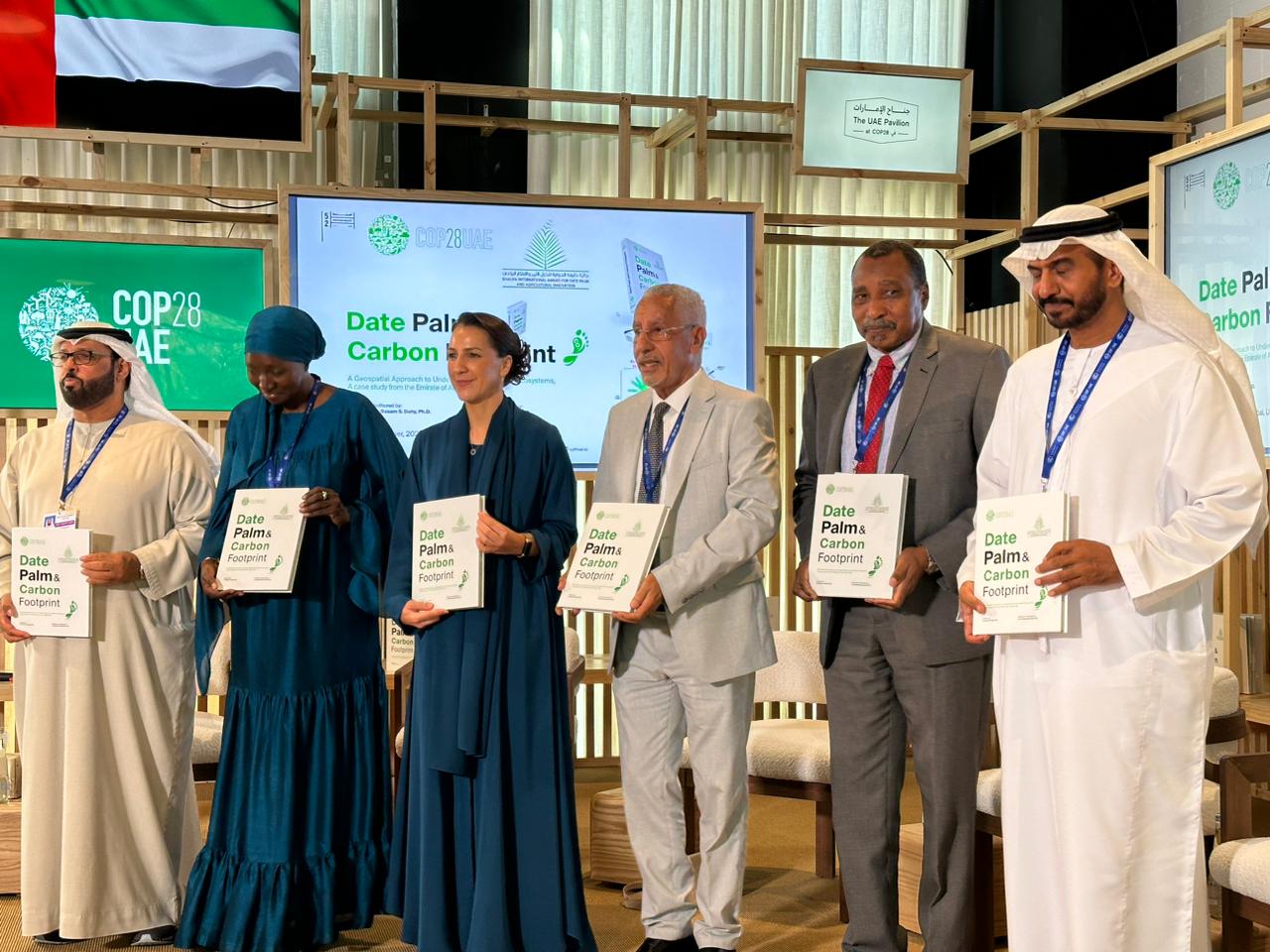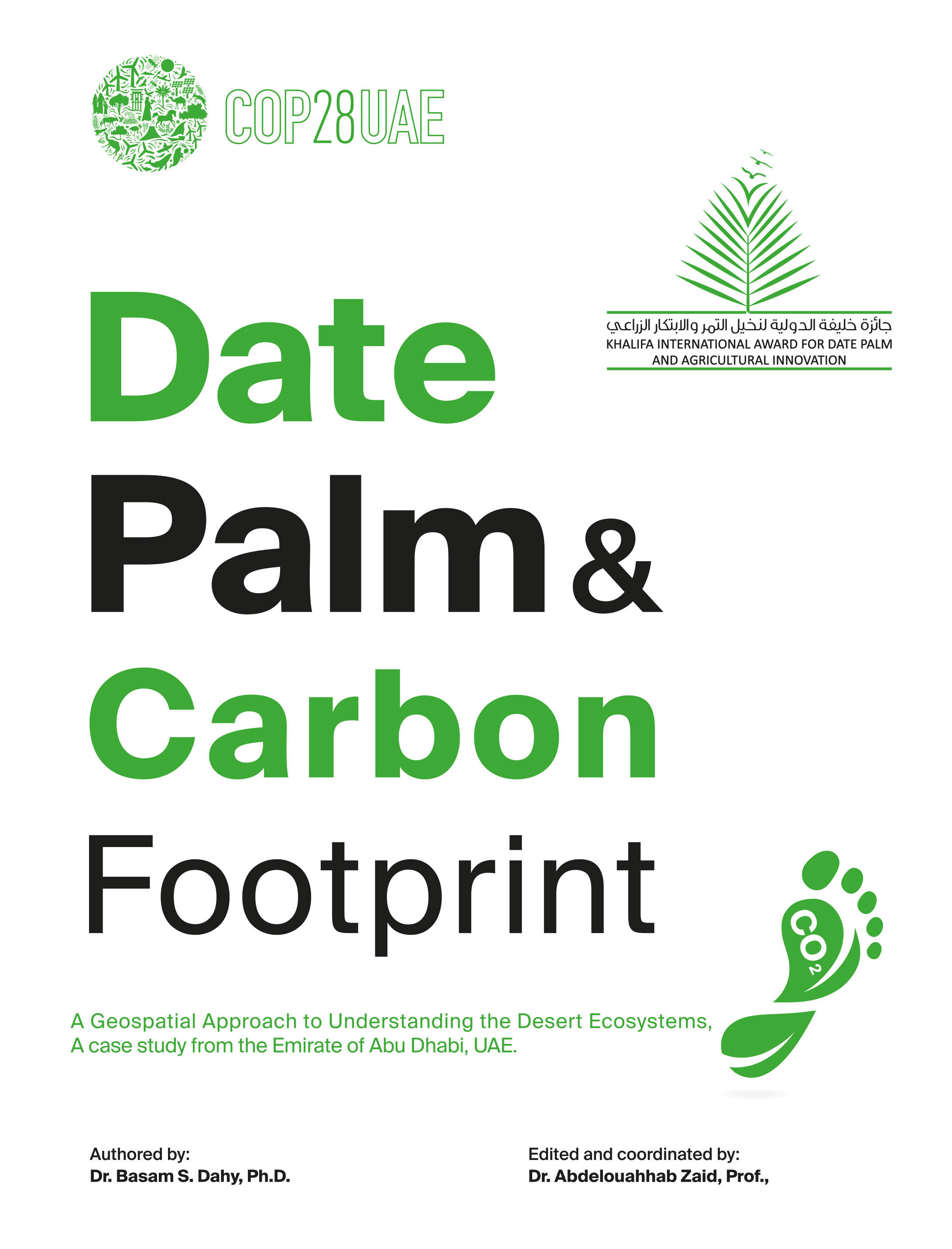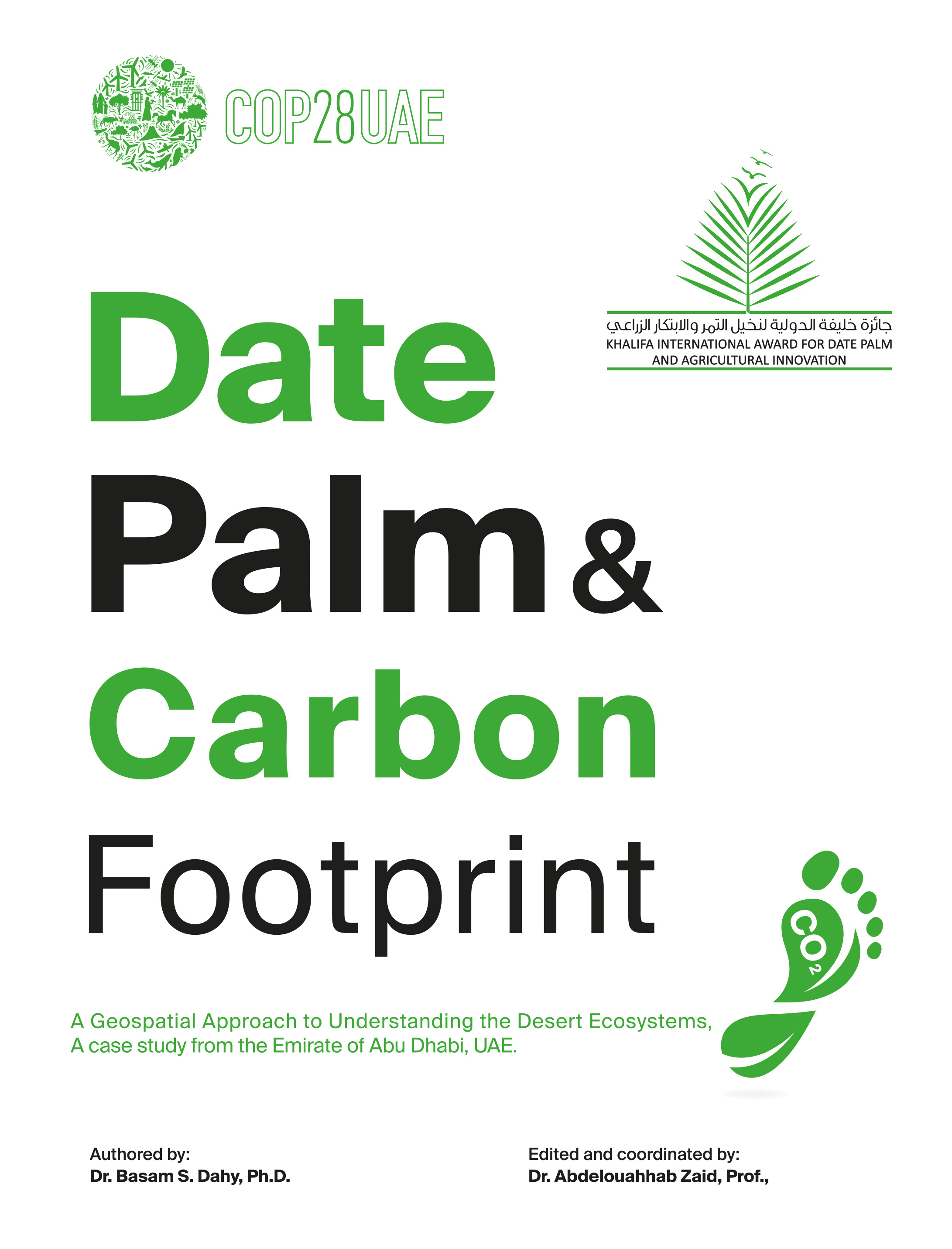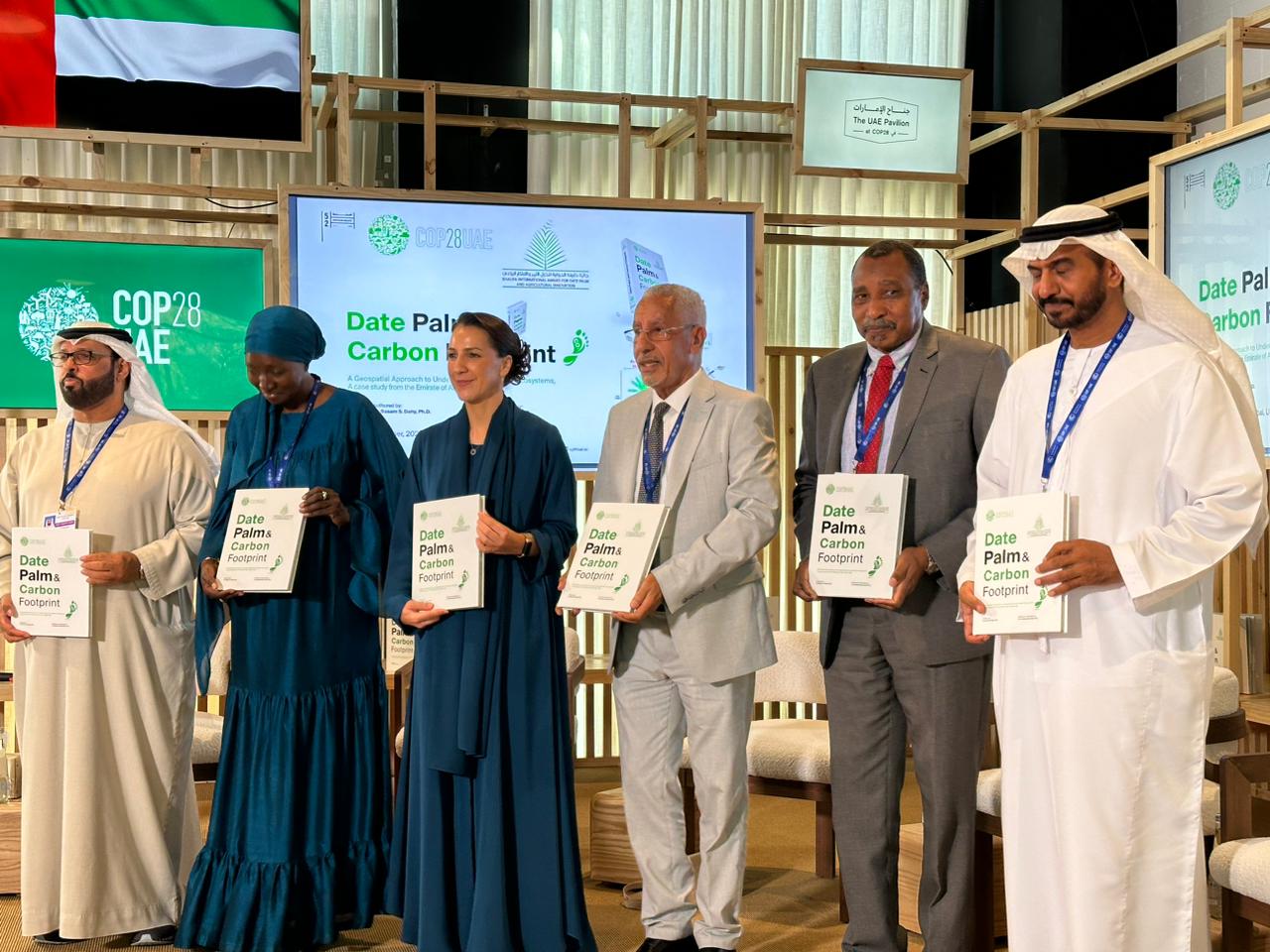
Award Program
Khalifa Award News
Abu Dhabi Date Palm Exhibition News
Egypt Festival News
Jordan Festival News
Sudan Festival News
Morocco Festival News
Mauritania Festival News
Mexico Festival News
Pakistan Festival News
International Conference News


Issued by the General Secretariat of Khalifa International Award for Date Palm and Agricultural Innovation
Within the Award’s activities at the Climate Change Conference (COP28)
Khalifa International Award launches “The Carbon Footprint of the Date Palm”
For the first time in the UAE and the Arab region, a scientific study was conducted to measure the date palm tree carbon footprint
• H.E. Nahayan Mabarak Al Nahayan: The blessed tree plays an important role in reducing climate change.
• Dr. Abdelouahhab Zaid: The date palm tree plays an essential role in holding carbon at an average rate of 368 kg.
In the presence of H.E. Sheikh Nahayan Mabarak Al Nahayan, Minister of Tolerance and Coexistence, Chairman of the Board of Trustees of Khalifa International Award for Date Palm and Agricultural Innovation, the Award’s General Secretariat issued “The Date Palm Carbon Footprint” book, in English language, where the book’s launching ceremony took place at the UAE pavilion, COP28, under the supervision of Dr. Abdelouahhab Zaid, Award’s Secretary General. This was in the presence of H.E. Mariam bint Mohammed Al Mheiri, Minister of Climate Change and Environment, H.E. Dr. Mohamed Sadiki, Minister of Agriculture, Fisheries, Rural Development, Water and Forests, Kingdom of Morocco, H.E. Prof. Ibrahim El-Dukheiri, Director General of the Arab Organization for Agricultural Development, H.E. Aly Abu Sabea, Director General of International Center for Agricultural Research in the Dry Areas(ICARDA), H.E. Dr. Helal Humaid Saed Al Kaabi, member of the Award’s Board of Trustees, and H.E. Dr. Latifa Yaqoubi, Director of the National Agency for the Development of Oasis and Argan Areas in the Kingdom of Morocco, along with the participating Award team and a number of experts and guests.
In the book’s introduction, H.E. Sheikh Nahyan Mabarak Al Nahayan, emphasized the important role that the blessed tree plays in reducing the effects of climate change. Dr. Zaid, Award’s Secretary General, also pointed out that the agricultural sector in general has a crucial role in reducing the impact of global warming, through absorbing greenhouse gases from the atmosphere, the most important of which are Carbon dioxide (CO2). Plants and trees in general absorb CO2 from the atmosphere during the process of photosynthesis, in which sunlight is converted into chemical energy. The carbon dioxide and water are then used to produce sugar and oxygen. Therefore, the larger the agricultural area, the more carbon dioxide can be absorbed from the atmosphere.
On the other hand, Dr. Abdelouahhab Zaid, Award’s Secretary General, indicated that the launching of this book comes within the framework of participation to the official delegation of the United Arab Emirates in the Climate Change Conference (COP28), where he added that making the most of agriculture as a mean to store carbon requires a balance between sustainable practices and nutritional needs. Hence, comes the importance of the date palm tree, as it is one of the most important trees with the ability to seize carbon dioxide gas from the atmosphere and store it within the dry mass of the palm tree. Since one tree’s capture of CO2 gas depends on the size and area of the green parts, the date palm tree is characterized by its large size. The size and density of its fronds, therefore, the amount of carbon stored by the palm tree is very large, especially if we know that the NENA region includes more than one hundred million palm trees. Therefore, the importance of the Award’s interest in measuring the carbon footprint of the date palm tree according to a documented scientific method, because of its Strategic importance in mitigating the effects of climate change. Dr. Abdelouahhab Zaid, also confirmed that we can estimate the amount of carbon sequestered by a single 10-year-old date palm tree within the UAE environment at approximately 368 kg of carbon within the biomass and soil in which it is grown.
From his side, Dr. Bassam Saeed Dahi, an expert in the carbon footprint, explained that what distinguishes this study is the use of satellite images and geospatial modeling that uses remote sensing variables, and which opens a wide scope for the use of these technologies in the future to improve managing the environment and sustainable planning of the natural resources, as well as supporting the country’s efforts to reduce the effects of climate change and reduce the carbon footprint through expanding date palm cultivation, as well as other plants in arid regions.













